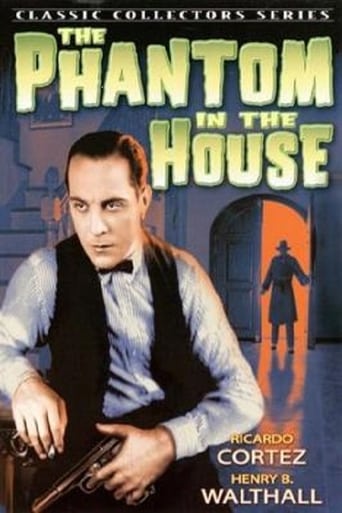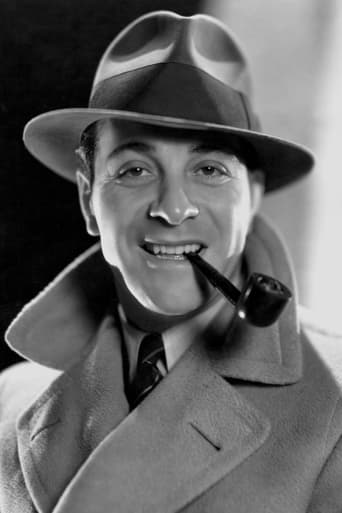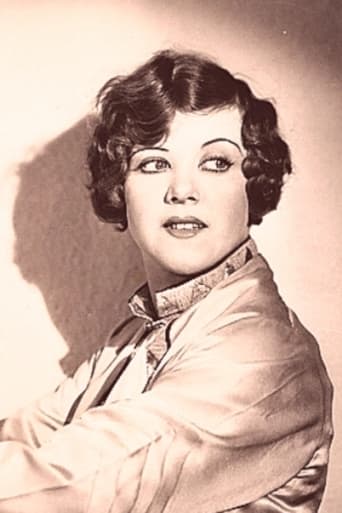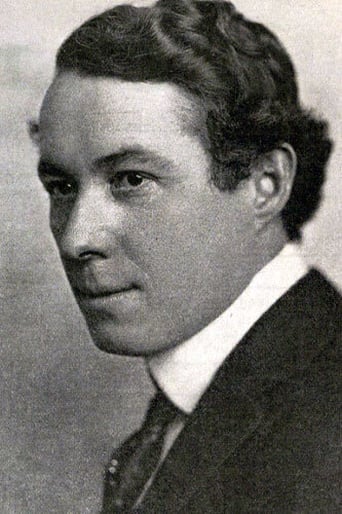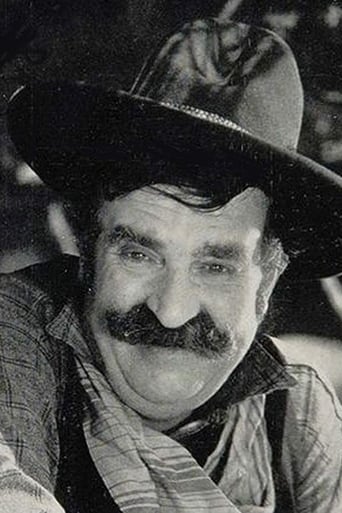A man is blamed for a murder that was actually committed by his wife.
Reviews
Good movie but grossly overrated
Good concept, poorly executed.
I enjoyed watching this film and would recommend other to give it a try , (as I am) but this movie, although enjoyable to watch due to the better than average acting fails to add anything new to its storyline that is all too familiar to these types of movies.
Although I seem to have had higher expectations than I thought, the movie is super entertaining.
Not a bad effort for its era. People seeing the audience reaction in "Singin' In the Rain" are seeing an anachronism.That would be the reaction of a 1950 audience used to perfected talking pictures.But for audiences accustomed to silent movies,even imperfect sound was marvelous,making complicated plots like this far more practical than with silents. As others said, Henry Walthall and Ricardo Cortez give very professional performances. The film of course is "stagy", partly due to the limitations of sound equipment at the time but more due to the type of story it was.Even later efforts like"The Mask of Demetrius" were just about as stagy because of the nature of the plot. For one thing, this and other movies allow us to see basically what a stage melodrama of the period was like,something almost impossible to completely duplicate today,because todays actors simply didn't grow up in that old tradition. Still, the sets are very interesting, and it is somewhat filmic, allowing scenes and shots such as closeups that stage can't provide, so it is better than merely a filmed stage play. All in all a rather interesting movie.
It's not really necessary to keep in mind that this movie was made at the dawn of the sound era. You don't have to keep it in mind because you'll be constantly reminded of it.The actors pause for eons between lines and when they speak the utterances seem to roll on slowly forever. When the wife addresses the husband's back, you can go outside and take a stroll around the block while he slowly turns around and prepares a response."Do you expect me . . . to believe . . . . . . . . . . . . that?"The lines are stilted and overly theatrical, as if drawn from the 1800s, a parody of the silent movie being parodied in "Singin' in the Rain." The acting is outlandishly overdone. "Oh, mother dear," sobs the young girl sobbing on her mother's shoulder. No kidding.The story is a little complicated and not worth explaining in detail. Henry Walthall takes the rap for his wife when she murders a man trying to rape her. He sends her diagrams of his inventions from prison. She patents them and becomes rich. After fifteen years he returns home under a nom de geôle and finds his spouse distant and materialistic, while his little girl is now grown up and cute. Conflict ensues. Some critical scenes have been deleted for one reason or another.The movie isn't without merit. We often use the expression "lockstep." Originally it didn't mean simply complete agreement on an issue. Lockstep was a method of getting a group of prison inmates from place to place, walking so close behind one another that the steps had to be simultaneous. It used to be sometimes used by hoofers on the stage too, where it was called "nesting." There is an interrogation scene in a police station that lacks any subtlety whatever but does use dramatic lighting. And the director shoots a woman making a phone call. When she hangs up, the camera goes out of focus and wobbles in for a close up of the telephone dial. Cut to a similar shot of another telephone later. It's a wonder he could move the camera at all, those blimps being what they were at the time.If it fails as gripping drama, it succeeds as historical curiosity.
THE PHANTOM IN THE HOUSE is a very, very old fashioned film--the sort of film that was common back in 1929 when studios first began making talking pictures. So, I cut it a lot of slack. However, when seen today, it really comes off very, very poorly.One of the first problems you'll probably notice is the sound track. The voices and lip movements are way out of sync on the DVD from Alpha Video and I assume all existing copies have that problem. One reason it was common in early sound films was that initially the sound was NOT included on the film strip but came on an accompanying record. Invariably, the record and film not be matched up perfectly--and this film is no exception. Additionally, like all such early films there is very little incidental music and sound effects--making for a strangely quiet film. By the early 1930s, this problem was eliminated, but the only way they knew to add music was to literally have a small orchestra stationed just off camera! h These were not the major problems in the film--just two you'll no doubt notice. However, a few more serious problems did impact how much I liked the film. The dialog was generally bad and the acting quite wooden, though there were some exceptions. Ricardo Cortez and Henry Walthall were professionals who already looked comfortable in front of the camera. This is especially true of Walthall who had been on stage quite a bit during his long career. The rest of the cast were not so skilled and it showed.Still, these were not the most serious problem in the film. The biggest single problem is the plot. It was hardly believable and the way some of the people acted was ridiculous. For example, when the film began, Walthall and his wife are in the room with a dead man--a man the wife had just killed. Walthall THOUGHT she'd been having an affair yet HE claimed it was him who killed the man! It was clearly self-defense--so why did he say he did it?! He spent 15 years in prison for something he did not commit AND he thought his wife was guilty! This made no sense. Additionally, while he was in prison protecting his wife, he was also sending patents for inventions to her and she became wealthy. When he was paroled, she wanted nothing to do with him!! Think about it--he saved her and provided for her so well that she now was quite rich YET she wanted him to just disappear! This, too, made no sense.Overall, the sound issues and dialog can be forgiven--after all, that the was the norm for 1929. But a clichéd and silly plot cannot--so I can't recommend you see this soapy film.
When a male friend tries to take advantage of a woman she kills him in order to protect her honor. Her husband rushes her way just as the police arrive and ends up taking the rap for her. 15 years later he returns home, his wife rich with the money from his inventions, and his daughter believing he's dead. As he tries to get his life back complications arise which threaten the lives of his wife and child.Slow melodrama this film suffers from being made in the early early days of sound. Scenes are often static (though not as static as some other films of the period) with the result the movie feels like its moving at a snails pace. The script isn't bad but it feels more like a mannered play than anything thats real. The dialog is either a pronouncement or an attempt at witticism which more often falls flat. The cast is a mixed bag. To be certain stalwarts like Henry Walthall and Ricardo Cortez show every reason why they had long careers, others clearly were hired because they could speak. This is not the sort of thing one really needs to see unless you are in need of sleep.
Top Streaming Movies












